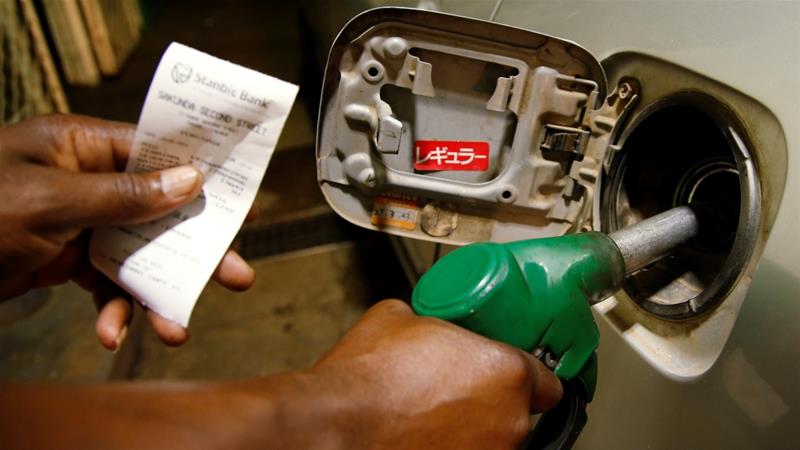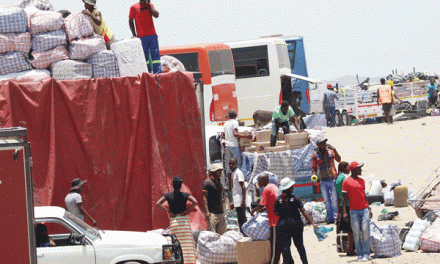Last week I wrote on the recent move by Zuva Petroleum to start selling fuel at 8 of its fuel stations in foreign currency. The development did open up a can of worms as many perspectives emerged from the public. Since that development, another one has also come to light. Given that a fuel service station has free funds it can now import fuel for subsequent sale in foreign currency. This, however, is going to be preceded by applying to ZERA for approval. The central bank has mandated ZERA to receive and process those applications.
A Brief Overview
We saw SI 142 of 2019 coming in to repeal the multicurrency regime in 2019. There were some exceptions to SI 142 of 2019 as stipulated in SI 212 of 2019. SI 212 of 2019 pointed out that State guests and diplomats could purchase fuel using foreign currency at certain fuel service stations. Later on we saw some exemptions being issued regarding the use of foreign currency as legal tender by some traders. Last week is when we saw the Zuva Petroleum DFI fuel service stations development.
Mixed Signals
It is an established fact that the multicurrency regime was repealed. Regardless, we have continued to see foreign currency still being used widely as tender. The exemptions and exceptions to the SIs put in place have made that commonplace. This is because those exemptions and exceptions have compromised the potency of any enforcement of compliance to the SIs. Now we see a channel being opened for the possibility of fuel service stations to sell fuel in foreign currency. This, of course, does not negate the fact that several fuel service stations have been accepting foreign currency payments all along. All these dynamics indicate mixed and conflicting signals.
Here is the thing; the government has been vocal about de-dollarizing the local economy. However, what the government is allowing is replete with indications of dollarization. For instance, this recent development of where fuel service stations can now apply to import fuel and sell it locally in foreign currency. As much as it can improve the local fuel supply situation it is riddled with so many sticky issues. Fuel is a central element of all economic activities so if the fuel sector becomes increasingly dollarized how will that not ripple into other sectors? Couple that with the fact that the local economy is mostly informal – a sector that is characterized by the use of foreign currency as legal tender.
The Central Bank Thinks Otherwise
Says De-Dollarization Is Well On Course
Despite all the public concerns, the central bank maintains that de-dollarization is well on course. The central bank indicates that since the re-introduction of the local currency last year de-dollarization has so far been good. Transactions worth roughly ZWL$460 billion have since been done using the local currency. Whether this is really a fully representative metric to measure the progress of de-dollarization is obviously a debatable matter. Earlier I mentioned about the informal sector (which accounts for over 60 per cent of total economic activity). With that size and with foreign currency transactions being dominant there one wonders whether de-dollarization is truly well on course.
Says Selling Fuel In Foreign Currency Does Not Affect De-Dollarization
The central bank insists that this move will provide more flexibility to consumers. They also say that it will make more foreign currency available in the formal system. Pardon me if I sound too critical but there is no guarantee that the money will end up benefitting the ordinary citizen. The central bank governor, Dr Mangudya even cited examples of other countries that are de-dollarizing. He gave an example of DRC where 70 per cent of all transactions are done in foreign currency yet they are de-dollarizing. He also highlighted that de-dollarization does not mean a total absence of foreign currency in circulation. That is a statement that can be scrutinized from many different angles though.
The government says that they are confident that de-dollarization will be completed within the next 5 years. Sadly, the current developments are not showing any basis for confidence that this will happen. One of the critical catalysts to de-dollarization is surging confidence in the local currency. As it stands, the value of and confidence in the local currency continues to plummet. Inflation is soaring high and the economic climate is gloomy so to say de-dollarization is well on course is highly questionable. As for the selling of fuel in foreign currency we just have to wait and see how things pan out. All things considered, there are still a lot of grey areas and contentious issues at play.








